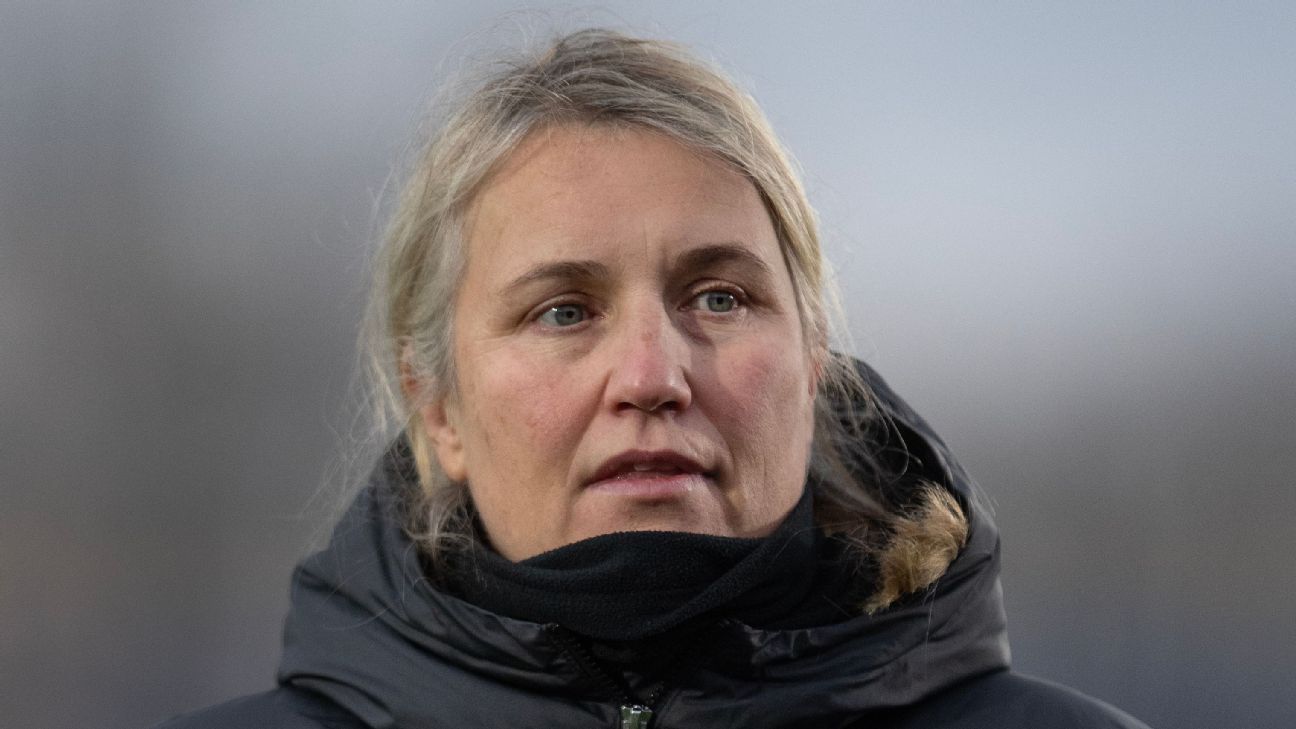Chelsea manager Emma Hayes said player-to-player relationships within the same team are “inappropriate” because they present extra challenges to manage, although she acknowledged that “we’re dealing with human beings.”
Hayes is in her last season at Chelsea before she takes over the United States women’s national team in June, when it is expected she will lead the side for the first time in a pair of friendly matches against South Korea.
– Stream on ESPN+: LaLiga, Bundesliga, more (U.S.)
Speaking at a news conference before this weekend’s game against Arsenal, Hayes was asked about player safeguards after widespread reports in the British media that Leicester women’s manager Willie Kirk is being investigated by the club following an allegation of a player-coach relationship.
“We have to have safeguarding, make sure that’s it’s accessible for each and every club to protect players,” Hayes said.
“Player-coach relationships, they’re inappropriate, player-to-player relationships are inappropriate.
“But we have to look at it in the context of where the game has come from and say, ‘Look, we’re in a professional era now’ where the expectations in place for players and coaches is such that all of our focus and attention has got to be on having the top standards.”
Hayes said player-to-player relationships can be hard to navigate for a coach.
“One player’s in the team, one’s not in the team, one might be in the last year of their contract, one might not be,” Hayes said.
“We all know, those of us that have been in the women’s game for a long period of time, those things have been happening in dressing rooms. Longer term, it would be ideal … where you don’t have to deal with that.
“We’re dealing with human beings. We do talk about it internally.”
Hayes said it’s important to consider the historical contexts.
“Women’s football as we know has been a very amateur game for a long period of time, so — and I say this around player-to-player relationships as well — there’s challenges that we’re moving to a point where we should be moving past those places,” Hayes said.



